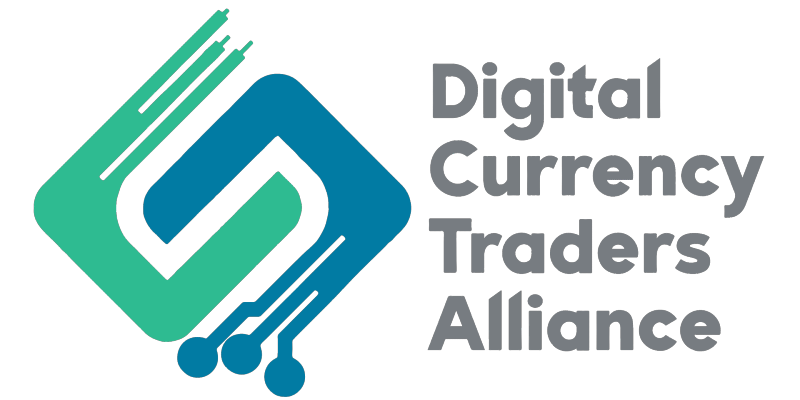California Legislature Begins to Embrace Digital Currency
The California Legislature officially started the second half of its legislative session in January, and we just hit our first major milestone on February 18, 2022 – the bill introduction deadline.
Now, barring any last-minute gut-and-amends (when a bill has its contents deleted and replaced with unrelated language), we have access to all of the bills that the Legislature will consider during the current year. Significantly, we are beginning to see more attention focused on the cryptocurrency/blockchain space. For the first time, we see multiple legislative offices with dedicated staffers working on cryptocurrency as an issue area – a sure sign that legislators are starting to inquire about and focus on the space.
Over the past week, we have met with several legislative offices and committees in order to introduce them to the Digital Currency Traders Alliance (DCTA) and offer ourselves as an educational resource. One of the biggest takeaways is that they have consistently stressed the need for more education – both for advocates and the legislators/staff who want to learn more about cryptocurrency.
We have also been in talks with legislative staff about the idea of holding a joint-informational hearing, where the Legislature invites stakeholders and industry experts to share their thoughts, suggestions, and opinions on the space.
The next few months will be filled with legislative hearings, where legislators will have the opportunity to debate each bill. As a result, the next few months are ideal for reaching out and educating policymakers.
While we will continue our education efforts to the Legislature, we will also be announcing a virtual training on how to be an effective advocate. Stay tuned for additional resources and legislative action days that you can be a part of to help push sensible cryptocurrency policy.
If you would like to support our work so we can expand our efforts into other states, please consider joining DCTA as a member or you can make a simple contribution to support our efforts.
Below is a quick overview of the legislation that has been introduced in California during the current 2021-2022 legislative session:
AB 2689 (Cunningham)
Authorizes organizations in the state, in both the private and public sectors, to accept virtual currency as a payment method for goods and services, including governmental services.
Pros:
Supports the adoption and legitimacy of cryptocurrency as a sector.
Concerns:
Potential privacy concerns around disclosure of wallet addresses.
Note – Bill is similar to SB 1275, but with an expanded scope.
AB 2781 (Cunningham)
Requires the California Employment Development Department to study the feasibility of utilizing blockchain technology.
Pros:
The use case of blockchain for government services has traditionally been overlooked, this bill could potentially begin to reverse that. Promotes adoption, legitimacy, and integration of the sector.
Concerns:
Potential for a difficult implementation.
SB 638 (Hertzberg)
Extends the expiration of a current law that allows corporations to record and store their articles of incorporation on blockchain. Revises the codified definition of ‘blockchain technology’.
Pros:
The use case of blockchain for government services has traditionally been overlooked. Promotes adoption, legitimacy, and integration of the sector.
Concerns:
Currently inactive.
SB 689 (Hertzberg)
Authorizes certified copies of birth, death, or marriage records to be issued on the blockchain. Revises the codified definition of ‘blockchain technology’ to mean “a decentralized data system in which the data stored is mathematically verifiable, that uses distributed ledgers or databases to store specialized data in the permanent order of transactions recorded.”
Pros:
The use case of blockchain for government services has traditionally been overlooked. Promotes adoption, legitimacy, and integration of the sector.
Concerns:
Currently inactive.
SB 1190 (Hertzberg)
Requires the California Department of Technology, by January 1, 2024, to create the California Trust Framework in order to provide industry standards and best practices regarding issuing credentials to verify information about a person or legal entity. This Framework should be, to the greatest extent possible, interoperable with other governance frameworks for verifiable credentials.
Also requires the Department of Technology, by July 1, 2023, to partner with the Department of Education to develop and oversee 5-year pilot projects to allow high schools to use verifiable credentials for high school transcripts and have these transcripts accepted by community colleges.
Pros:
Industry best practices can result in greater consumer protections and cut down on malicious actors. The principle of interoperability should make the government more efficient. Promotes adoption, legitimacy, and integration of the sector and embraces a new use case for blockchain within the government.
SB 1275 (Kamlager)
Authorizes a state agency to accept cryptocurrency as a method of payment for government services.
Pros:
Supports the adoption and legitimacy of cryptocurrency as a sector.
Concerns:
Potential privacy concerns around disclosure of wallet addresses.
Due to the minimal language in many of these bills, we can expect to see amendments as the bills advance to hearings.
